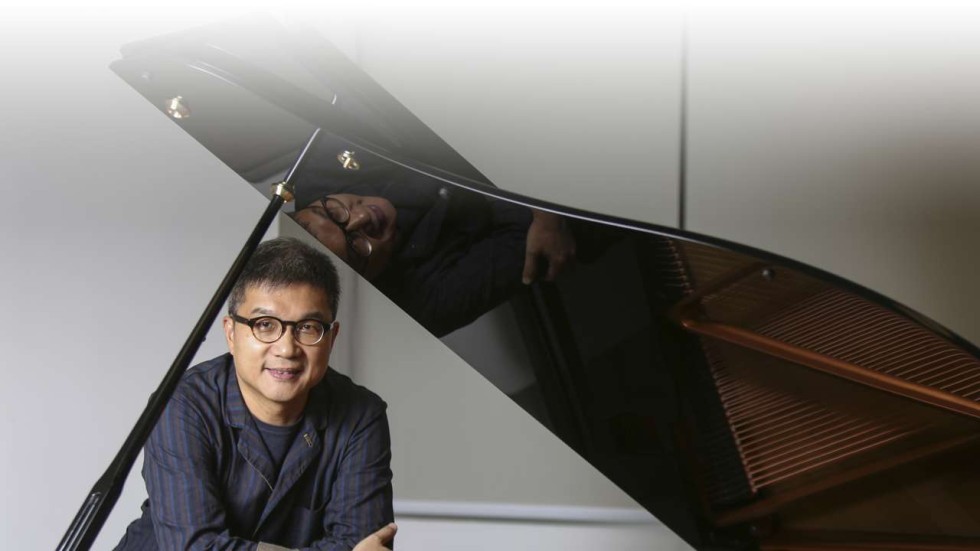We can all imagine how children learn to count: They start with 'one' and proceed in order of increasing cardinality ("one, two, three…"). But what about other words of quantity such as 'all', 'some', 'most', or 'none'? No-one teaches young children explicitly what these words mean or how they are used. And yet recent research involving 50 academics from around the world, including Dr Peter Crosthwaite from the University of Hong Kong, has found that children speaking one of 31 different languages master these words in the same order. Their findings bring a new perspective into the debate on the universality of language and point to universals in the process of how we learn language, as contrasted to universal properties of language itself. This research also opens the door to creating language assessment tests that are applicable to every language.
Dr Crosthwaite, who is an Assistant Professor in the Centre for Applied English Studies, joined Dr Napoleon Katsos from the University of Cambridge and over 50 colleagues from around the world in the study, which was published in the August 16 issue of the highly prestigious Proceedings of the National Academy of Sciences (PNAS). Dr Crosthwaite was responsible for testing Koreans in the experimental phase, alongside other scholars also contributing to Cantonese and Mandarin data collection.
The study attempted to determine how children acquire other kinds of quantifier words, such as 'some', 'all', 'most', 'none', and 'some are not', for which there is no natural order. The study included 768 five-year-old children and 536 adults who spoke one of 31 languages representing 11 language groups. The authors showed participants five objects and five boxes with zero to five of the objects placed inside the boxes. Participants listened to sentences containing one of the quantifiers (e.g., "All of the objects are in the boxes."), and judged whether the sentences correctly or incorrectly described the visual display. Children across languages acquired quantifiers in a similar order based on factors related to the words' meanings and uses. For example, children more successfully understood quantifiers such as 'all' or 'none' than quantifiers such as 'some' and 'most', suggesting that children acquire words that encompass totality at an earlier stage of development than words that denote a portion of a group.
For further details on the study, please visit:
http://www.pnas.org/content/113/33/9244.short
For media enquiries or individual interview requests, please contact Mr Cyrus Chan, Events Coordinator, Faculty of Arts (tel: 3917 4984 email:
cyrusc@hku.hk).
For the online press release and photos, please visit:
http://www.hku.hk/press/news_detail_15327.html
港大研究新發現:語言未影響兒童學習量詞的次序
我們都能想像兒童是如何學習數數目的,由一開始數下去,一、二、三…。但是那些用來表示數量的詞語,例如 "all", "some", "most" 和 "none" 呢?沒有人能夠具體地向幼童說明這些抽象字詞的意義和用法。然而,根據50名來自世界各地的學術專家,包括來自香港大學的Dr Peter Crosthwaite,近期對此進行的一項研究就發現,全球上31種不同語言的兒童用相同的次序來學習這些詞語。這項結果對語言的全球性和全球語言學習過程的討論帶來了全新的視野,突破了以往只討論語言特性全球化的局限。這項研究亦開啟了適用於各種語言的統一評估測試之門。
這項研究由香港大學應用英語中心助理教授Dr Crosthwaite,聯同劍橋大學的Dr Napoleon Katsos以及超過50位世界各地的學術人員共同參與,並刊登於學術界享負盛名的雜誌Proceedings of the National Academy of Sciences (PNAS)。Dr Crosthwaite負責對韓國籍人士進行實驗測試,並與其他學者收集粵語和普通話的數據。
研究目的是了解兒童如何學習和掌握沒有自然順序的量詞,如"all", "some", "most", "none" 和 "some are not"。而當中參與研究測試的768名五歲兒童和536名成人,能說31種語言的其中一種,並代表11個不同的語言組合。研究人員向參與者展示五件物件,以及五個放了零至五件物件的箱子。參與者聆聽每句包含一個抽象量詞的句子,例如 "全部物件都在箱子裡面",然後分辨句子是否正確描述眼前展示的情況。運用不同語言的兒童在認知這些量詞時,根據詞語的意思和用法會有相似的次序。舉個例子,兒童較能夠掌握 "all" 和 "none",相對難以掌握 "some" 和 "most",顯示出兒童在較早發展時期掌握具整體性的字詞,而在較晚期才會掌握部分性字詞。
如欲深入了解這項研究,歡迎瀏覽
http://www.pnas.org/content/113/33/9244.short。
傳謀查詢或採訪,請聯絡文學院活動統籌陳卓鈞先生 (電話: 3917 4984; 電郵:
cyrusc@hku.hk)。
新聞稿網上版及照片,請瀏覽:
http://www.hku.hk/press/c_news_detail_15327.html































